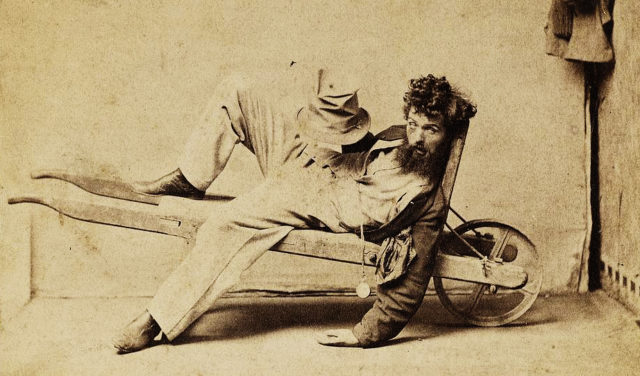“What shall we do with our criminals?”
In the fall of 1875, Judge Harmon Conger, the same judge who admitted Lavinia to the Rock County bar, changed the course of her legal career. She was sitting in her office drafting a client’s will when a sheriff popped in to announce that the judge had just appointed her to defend two criminals. One, James Tolan, was charged with stealing a watch from someone. The other, Harrison Cramer, had allegedly stolen spoons, jackknives, and a black silk belt from a store. The appointments surprised Lavinia.

She had been practicing law just 18 months. By this time, she had defended a wrongfully accused, “highly respectable” woman and prosecuted a few liquor dealers. In an article called “My Tramp” she told readers of the Christian Union that it was easy to defend a persecuted saint and the rights of the weak and oppressed. “But to defend a thief and a tramp was by no means a romantic prospect.” What if the watch thief took a fancy to her watch?
On the other hand, these cases offered a new source of income without the hassle of collecting from clients. Thanks to Carpenter v. Dane County, 9 Wis. 274 (1859), Wisconsin criminal courts could appoint lawyers to defend indigent criminals, and the county had to pay the legal fee. Lavinia expected to receive $15 per day for her work, and she was excited at that prospect, though unsure about criminal defense.
Lavinia had never been in a jail before. When she arrived to meet her new client she found a small room with one grated window, a stone floor, a table, a few hard chairs, and “a cluster of shouting, riotous men who seemed to be holding high carnival” at one end of the room. It was a cold, dreary room, but she was mostly “shocked” to find that “inmates spent their entire working hours in absolute idleness.”

The client who changed her view of criminals was James Tolan. They met in a small, separate room behind a barred door where, she wrote: “my criminal . . . handed me a chair with the air of a gentleman.” She described him as a”short, bright, active young man, with bold, hard-looking black eyes, and a full, rounded forehead betoking intellectual ability beyond his class.”
Lavinia learned that Tolan had been orphaned as a child. He made his way mostly by “tramping,” and enjoyed getting “gloriously drunk.” At this first meeting, he did not seem to have a “moral nature.” He liked to read, and had a remarkable gift for expression. He had exhausted the sheriff’s library and asked her for books to read, especially law books.
Lavinia left the jail “with a brainfull of new and strange ideas.” She was appointed to defend Tolan in court, but she was concerned about the course of his life. Could she reach his “moral nature” and stimulate his ambition? She had gained his confidence and an opportunity to reach him through literature. She asked herself: “Can I manage wisely to give what will interest and at the same time elevate him, and which will counteract the influence of his present surroundings, and his past life?”
Lavinia realized that Tolan was just one of many men whose lives were wasted languishing in jails. “What shall we do with our criminals?” she asked readers of the Christian Union.
Cannot these jails, now schools of vice, indolence, and crime be turned into schools of industry? Can we not set our criminals at work? Or if that be impracticable, establish a system of compulsory education in jail, for the week days, and on the Sabbath voluntary religious instruction, intermingled with sweet Sunday-school hymns; something that will send our criminals out from the jail, wiser, better, and more honest and industrious than before, instead of, as now, more indolent and vicious?
For Lavinia, the answer was an obvious “yes.” But first she had to defend her new clients in court. CB
Sources consulted: Lavinia Goodell, “My Tramp,” Christina Union, December 1, 1875. (Editor’s note: Lavinia’s article used pseudonyms for Judge Conger and James Tolan); Lavinia’s letter to Maria Goodell Frost, November 18, 1875.








I always like to hear what you have to say, Steve. You express yourself as well as Lavinia, your family member.
Though forward looking on matters of criminal justice reform, Lavinia’s allusion to phrenology “…a full, rounded forehead betoking intellectual ability beyond his class†suggests she, like many, associated one’s social/economic class with intellectual ability. Nevertheless, she was an early advocate for preventing recidivism by providing prisoners with opportunities for moral uplift, skill training, and intellectual stimulation so they might rise above their “class” and become productive citizens.
Incredible! Very brave for her to accept it. But, then it was ambitious for her to pursue being an attorney!